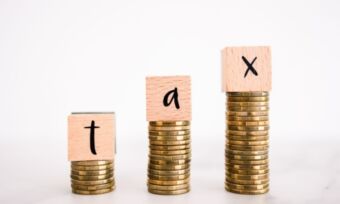Compare Super Funds
The super fund you choose could make a huge difference to your retirement. Compare super fund products from our Online Partners based on investment performance, fees and more.

 Online rollover
Online rollover
 Online application
Online application
 Online rollover
Online rollover
 Online application
Online application
 Online rollover
Online rollover
 Online application
Online application
 Online rollover
Online rollover
 Online application
Online application
 Online rollover
Online rollover
 Online application
Online application
 Online rollover
Online rollover
 Online application
Online application
 Online rollover
Online rollover
 Online application
Online application
 Online rollover
Online rollover
 Online application
Online application
 Online rollover
Online rollover
 Online application
Online application
 Online rollover
Online rollover
 Online application
Online application
 Online rollover
Online rollover
 Online application
Online application
 Online rollover
Online rollover
 Online application
Online application
 Online rollover
Online rollover
 Online application
Online application
Showing 8 of 51 results
To see more results adjust the filters above
Unsure of a term in the above table? View glossary
The initial results in the table above are sorted by Star Rating (High-Low) , then 5 year return (High-Low) , then Provider Name (Alphabetical) . Additional filters may have been applied, which impact the results displayed in the table - filters can be applied or removed at any time.
Why compare superannuation with Canstar?
No cost to you
Using our comparison tool to find a better deal is free. We may receive a commission from our online partners if you apply for a superannuation product you find on our site.
Expert research
Our team of superannuation research experts crunch the numbers to rate superannuation products based on value (price as well as features) to help you compare. Read the superannuation methodology.
A wide range of funds
We rate and review superannuation products from more than 60 brands which means you can compare and choose products from both large and challenger brands, established and new.
Easy to compare & apply
Our superannuation comparison tool allows you to filter your search results so it’s easy to find the right product for you. What’s more, you can click straight through to many of our online partners, making it easy to apply instantly.
Better deals are found when you compare
Canstar helps millions of Australians each year compare and find better deals
Latest in superannuation
How does Canstar compare superannuation?
 Canstar compares superannuation using a unique Star Ratings methodology that compares both cost and features across superannuation products on our database. Canstar’s Star Ratings represent a shortlist of products, enabling consumers to easily compare super funds and narrow their search to products that have been assessed and ranked.
Canstar compares superannuation using a unique Star Ratings methodology that compares both cost and features across superannuation products on our database. Canstar’s Star Ratings represent a shortlist of products, enabling consumers to easily compare super funds and narrow their search to products that have been assessed and ranked.
Use the selector tool at the top of this page to compare super funds using our Star Ratings. We have also compiled a list of non-rated Super funds for you to compare.
Learn more: How to choose a super fund
What is superannuation?
Superannuation is the portion of your earnings and savings that is placed in a fund and typically held there for you to use after you retire. The objective of superannuation is to provide income in retirement that substitutes or supplements the Australian Age Pension.
The money that is held for you within a superannuation fund is invested in a range of assets, including shares and property. Most superannuation funds let their customers choose how their superannuation balance is invested. The income earned by your superannuation investments is taxed concessionally, according to the Australian Taxation Office.
Given that superannuation will typically represent the bulk of retirement savings for many Australians, choosing a superannuation fund should ideally be a well-researched strategic decision.
What’s new in superannuation in July 2025?
- From June 1 this year, the superannuation guarantee rises from 11.5% to 12%, meaning hat employers will be required to pau all eligible employees a minimum of 12% of their pre-tax wage into their super.
- After 12 years of incremental rises, this is the last scheduled rise for the super guarantee, and represents a potential boon for Aussie workers, who will see their contributions to retirement savings increase.
- Following the recent federal election, Labor’s proposal to have people with super balances above $3 million is back in the headlines, with speculation as to whether it may be able to pass through the Senate.
- Currently, most money that goes into your super fund is taxed at 15%, but Labor has proposed raising this tax rate to 30% on the earnings of those with balances above $3 million.
- Labor would need the support of the Greens or the Coalition to get any super changes through the Senate, and both are opposed to the bill in its current form but open to negotiation about the threshold and indexation.
About our finance experts
Josh Sale, Superannuation Ratings Manager

As Canstar’s Ratings Manager, Josh Sale is responsible for the methodology and delivery of Canstar’s Superannuation Star Ratings and Awards. With tertiary qualifications in economics and finance, Josh has worked behind the scenes for the last five years to develop Star Ratings and Awards that help connect consumers with the right super fund for them.
He believes that for many Australians, superannuation is arguably the most important financial product they will ever have, as the fees you’re paying and your fund’s performance could be the difference between a comfortable retirement and struggling to pay the bills.
When it comes to his own super, the phrase ‘set and forget’ is not in Josh’s vocabulary. Not only does he check his super balance monthly, he maintains spreadsheets with projections to ensure he’s on track for retirement. He is passionate about helping others to actively monitor their super and make sure they are on track for the best retirement possible.
As one of Canstar’s spokespeople, Josh has been interviewed on a wide range of personal finance topics by media outlets such as the Australian Financial Review, news.com.au and Money Magazine.
You can follow Josh on LinkedIn, and Canstar on X and Facebook.
Nina Rinella, Editor-in-Chief
 As Canstar’s Editor-in-Chief, Nina heads up a team of talented journalists committed to helping empower consumers to take greater control of their finances. Previously Nina founded her own agency where she provided content and communications support to clients around Australia for eight years. She also spent four years as the PR Manager for American Express Australia, and has worked at a Brisbane communications agency where she supported dozens of clients, including Sunsuper and Suncorp.
As Canstar’s Editor-in-Chief, Nina heads up a team of talented journalists committed to helping empower consumers to take greater control of their finances. Previously Nina founded her own agency where she provided content and communications support to clients around Australia for eight years. She also spent four years as the PR Manager for American Express Australia, and has worked at a Brisbane communications agency where she supported dozens of clients, including Sunsuper and Suncorp.
Nina has ghostwritten dozens of opinion pieces for publications including The Australian and has been interviewed on finance topics by the Herald Sun and the Sydney Morning Herald. When she’s not dreaming up ways to put a fresh spin on finance, she’s taking her own advice by trying to pay her house off as quickly as possible and raising two money-savvy kids.
Nina has a Bachelor of Journalism and a Bachelor of Arts with a double major in English Literature from the University of Queensland. She’s also an experienced presenter, and has hosted numerous events and YouTube series.
You can follow her on Linkedin, or Canstar on Facebook.
You can also read more about Canstar’s editorial team and our robust fact-checking process.
Compare superannuation to suit your needs
Best performing super funds in Australia
Low fee super funds
Life insurance through superannuation
ANZ Superannuation
Compare super with income protection
Aware Super Superannuation
Compare superannuation with easy online application
Top Super Funds For Australians Aged 50-59
Best performing retail super funds
Compare super funds for young adults (18-29)
Best performing industry super funds
Superannuation guides and resources
Canstar’s expert superannuation guides and resources are designed to help you better understand your super, how it’s invested and whether you’re on track for retirement.
Superannuation: The Basics
How much Super do you need?
This content was reviewed by our Content Editor Alasdair Duncan and Editor-in-Chief Nina Rinella as part of our fact-checking process.
Important information
For those that love the detail
This advice is general and has not taken into account your objectives, financial situation or needs. Consider whether this advice is right for you.
















